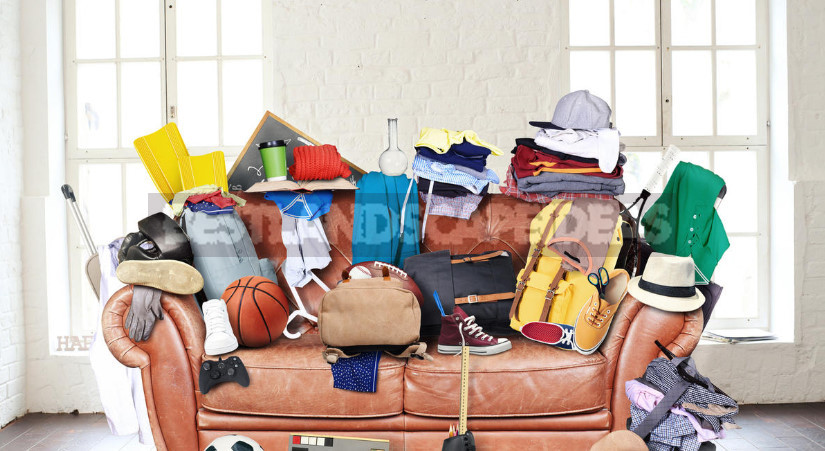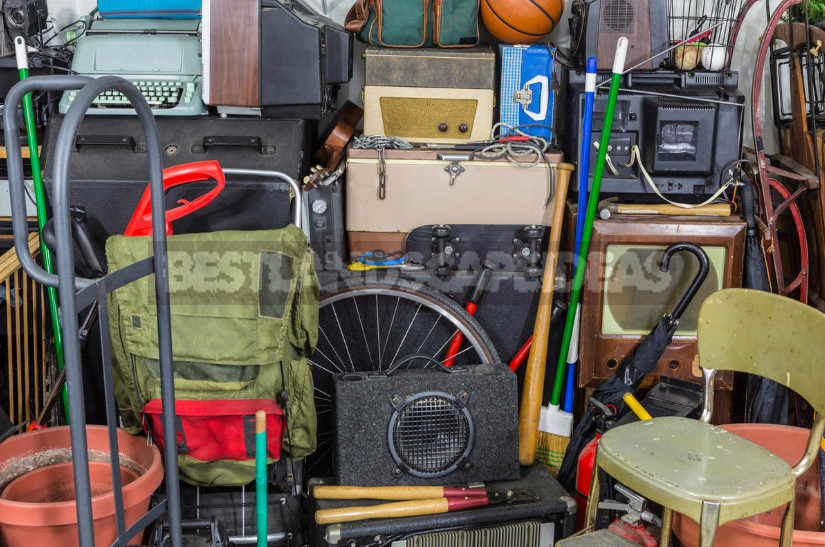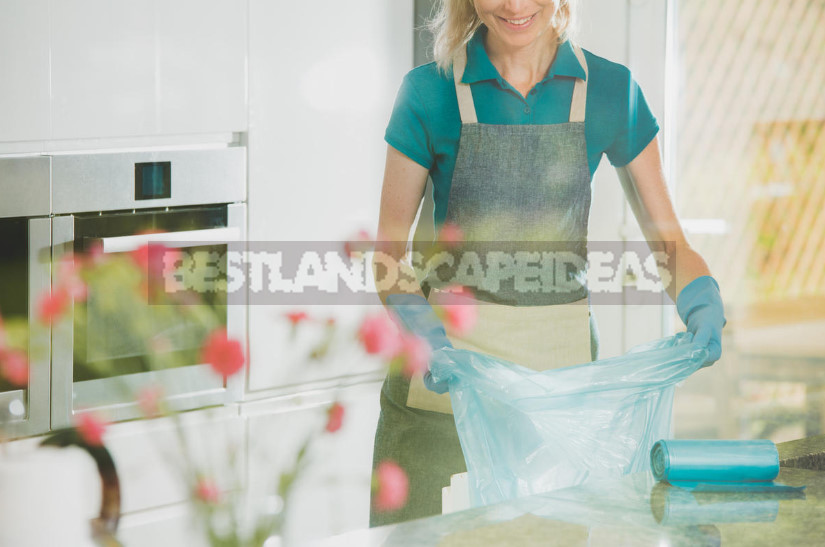
Spring is a time of renewal. Historically, it is at this time of year that we increasingly want to buy something. And just as often we come across mountains of old things.
For a country house, this point is especially relevant, because it is there that a considerable amount of garbage is sent to a lifetime exile. It is necessary, finally, to tell him a decisive “No”.
5 steps to getting rid of rubbish
Step 1. Define clear boundaries
Don’t try to deal with all the garbage at once. Divide the house into zones. Clean each one thoroughly. Don’t switch from one to the other. If there is free space during the cleaning process, it can then be reasonably filled in.
Also, divide all things into your own and others’. Summer vacation is a family vacation, and each family member brings things that are dear to their heart. No need to throw away the pot that your mother brought, even if you have 5 of them, or your husband’s old fishing rod, without asking him about it. You can only freely dispose of your own things, you need to negotiate with their owners about the rest
Step 2. Conduct an audit
One of the most important steps. At this stage, it is necessary to clearly distinguish the categories of things. Two systems will come to the rescue: Japanese 5S and the American FlyLady.
According to 5S, all things should be divided into:
- always needed;
- sometimes required;
- is unnecessary.
During the sorting process, a label is affixed to each item indicating the category, after which a decision is made.
By the way, to determine the degree of necessity of a particular thing, you need to answer the questions:
- Do I love this thing?
- How long has it been in use?
- Is there a worthy replacement for him?
- Do I need both? (if there are 2 similar ones)
- What emotions does this thing evoke?
This analysis will help you understand whether you really need this item or not.

In my opinion, it is more rational to use 5S. Just add a couple of items to it to get the following:
- I always use this;
- I use it sometimes;
- I don’t use it and I won’t;
- can be sold;
- you can give it away;
- can be transformed to breathe new life (this means that in the near future this thing will not automatically be equated to garbage, waiting until hands get around to it);
- this is not mine, I need your advice (to consult with the owners of things).
Step 3. Determine the storage location of the desired
When the categories of things are distributed, the places for storing all the necessary things are defined. It is very important to adhere to this distribution. We decided that the thread and needles were in the box, the rags and napkins were in one of the kitchen drawers, and the tools were on the shelf, so be it. If everything gets mixed up again, it will gradually begin the process of re-cluttering.
Step 4. Decide what to do with unnecessary things
It’s not that hard. It’s not right to throw it away. What is marked with a “sell” sticker can be sold either through friends or through an ad. Items marked “gift” are given to friends or those in need. There are too many sites dedicated to the topic “give for free”. And, finally, if you are a fan of handmade work, you know that from old things you can get original crafts, and sometimes quite functional things. The main thing is not to delay the process of reworking.
Step 5. Maintain order
Alas, you can not restore order and keep it in this form for a long time. But this should be sought and not allowed to return to the original state.

How to prevent clutter
If you don’t want to throw away, you shouldn’t bring/buy/borrow from neighbors. To avoid all the hassle mentioned above, don’t even start the process. You need to be very careful about what is brought to the dacha, what is bought or offered by neighbors with a tempting phrase: “Good thing, take it, I don’t need it…”
In this regard, there are some tips for “non-infringement of rights”.:
- Buy only what you really need at the moment. Buy not for the future, not for an apartment, not to give away as unnecessary, not because of a profitable promotion, not because it attracted advertising and you became a victim of marketing, but according to a clearly pre-compiled list of necessary things.
- Bring only what will not be “stale” and will not turn into”trash”. If you brought winter tires in the spring, because there is no place to store them, and in the winter you make a reverse maneuver, and so every year, this does not entail anything terrible. It’s about business, not dead weight. Another thing — worn tires, carefully prepared for the decoration of flower beds or other crafts. Then the hands do not reach, then there is no time, then something else-so a couple of seasons pass, and voila-the piggy bank of garbage is replenished. Grill, smokehouse, large boiler, electric pipes, etc. In the apartment it can be useful once more, and in the country — much more often. But items that have not been used for 2 years and are suitable for giving with a stretch, it is better not to bring at all. To the group of things, you can still add the construction materials remaining from the repair in the apartment that have a certain expiration date (if they are not implemented in a timely manner), as well as old furniture and household appliances (provided that the dacha has a full set).
- Think carefully before accepting a gift from neighbors or relatives of things they do not need. Do not go on about your own greed and take only what you will actually use.
What do you do with unnecessary things?




Leave a Reply